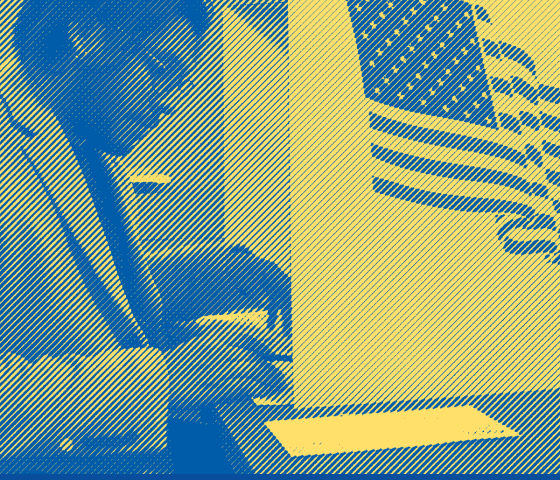By Mark Stringer
As the dust settles from the 2019 Iowa legislative session, one of the clear bright spots is the broad support and the leadership of Gov. Kim Reynolds for changing the Iowa Constitution to end lifetime disenfranchisement in Iowa.
Iowa is one of only two states that takes away voting rights—for life—from anyone convicted of a felony. That includes even low-level felonies like stealing an expensive bike, writing a bad check, or being caught with drugs.
While some were disappointed that the Governor’s proposed constitutional amendment didn't pass this year, as we look forward to next session, we remain optimistic for two reasons.
First, we're glad there is support for the constitutional amendment path on this issue. It's the only permanent way to make sure an estimated 60,000 (and growing) Iowans who have lost their voting rights can once again register to cast their vote. Over the past 15 years, voting rights for those with felony convictions—and for a time even those with mere aggravated misdemeanors—were restored or taken away with executive orders issued by various Iowa governors, and the law varied depending on the philosophy of the governor currently in office.
All of this has created confusion, uncertainty, and fear. This is no way to run a democracy.
The only way to change the law and to protect it from the vagaries of any given year's political climate is the path Gov. Reynolds has proposed: changing the Iowa Constitution. The legislature could, of course, pass a bill that changes Iowa Code to restore voting rights to those with felony convictions, but that law could easily be changed or rescinded later on during another legislative session.
Changing the Iowa Constitution is a long process, as it should be. To change it, a proposed amendment must pass two consecutive General Assemblies (each General Assembly covers two years—two legislative sessions). It must then go to a vote of the Iowa people before becoming enshrined in the Iowa Constitution. While this constitutional amendment has hit a speed bump in the Iowa Senate, the process is not over and we remain committed to getting it across the finish line.
Second, we are encouraged to see broad support in Iowa for ending felony disenfranchisement. Legislators of all political stripes recognize that blocking voting rights does nothing to keep our communities safer. Instead, it does the opposite. It continues to penalize people long after they've served their sentences and prevents them from becoming truly invested in their communities and contributing members of society.
Legislators also see the devastating impact this law has on communities of color. Because of systemic racism in the criminal justice system, a far higher proportion of Black people are incarcerated in Iowa. In fact, one in ten adult African-Americans in our state cannot vote because of a felony conviction—further stripping away their voice in a democracy that has so often failed them.
People who have had their voting rights taken away can apply to the governor's office to have them restored. But since 2011, only about 350 Iowans have had that right restored because the process was complex and risky. Now, Gov. Reynolds has taken steps to improve the form, removing a fee and altering the wording to lessen concerns about perjury if the information was not complete or accurate.
A strong, healthy democracy encourages voter participation from as many segments of the community as possible. We look forward to continuing to work with Gov. Reynolds, legislators and a broad range of groups to make that a reality—finally—in Iowa.
Mark Stringer is the executive director of the ACLU of Iowa. He can be reached at info@aclu-ia.org.
